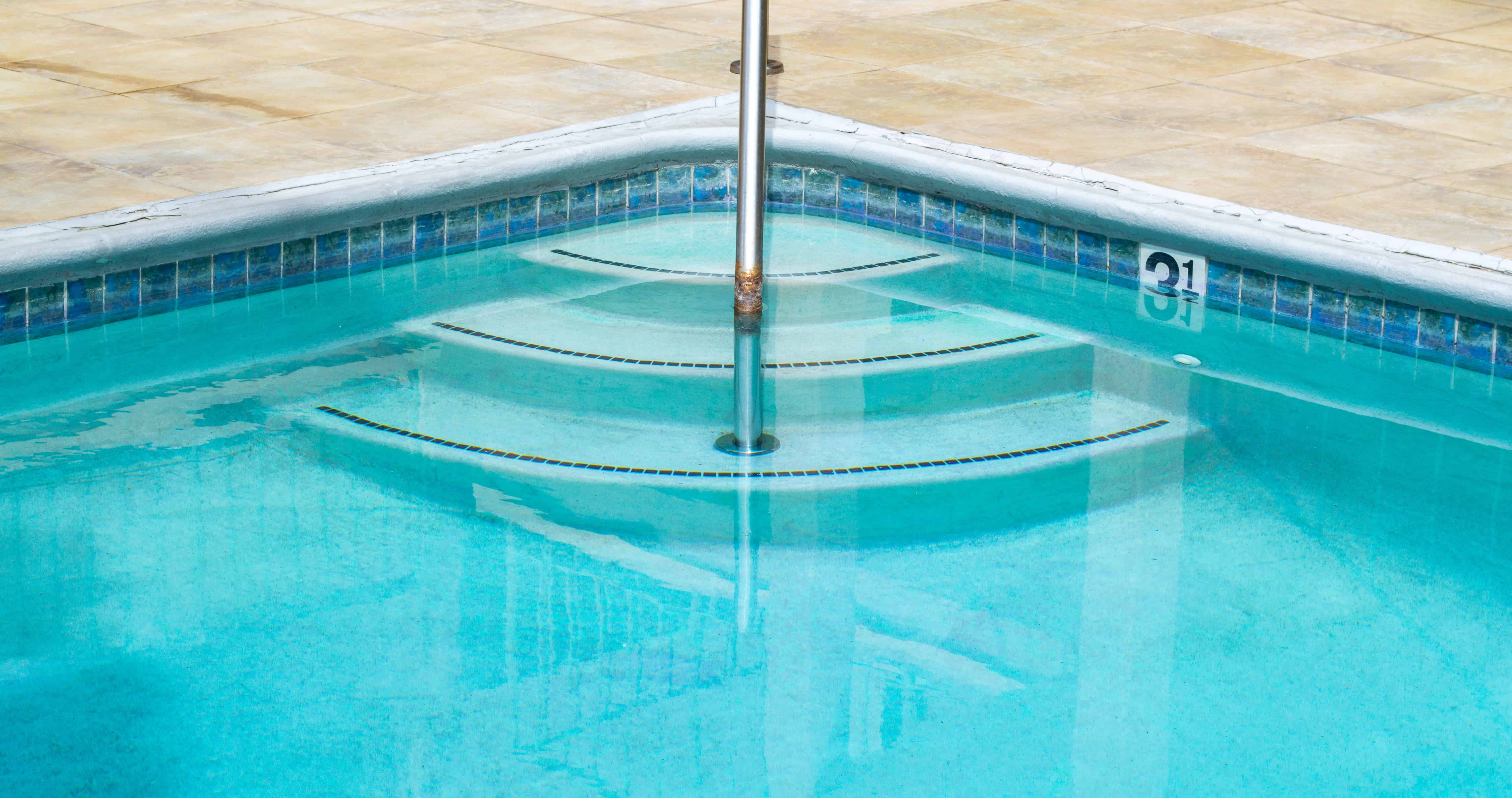Calcium hardness refers to the amount of dissolved calcium in the water of a saltwater pool. It is important to maintain proper calcium hardness levels in a saltwater pool to prevent water from becoming too soft or too hard, which can cause problems for pool equipment and swimmers.
If the calcium hardness level in a saltwater pool is too low (the water is too soft), it can cause the water to become corrosive, leading to damage to pool equipment and surfaces. If the calcium hardness level is too high (the water is too hard), it can cause scaling on pool surfaces and equipment, reducing their efficiency and lifespan.
Why Calcium Hardness Gets Too High
A pool’s calcium hardness can get too high due to several factors:
- Hard water: If the source water used to fill the pool has high levels of dissolved calcium and other minerals, it can contribute to higher calcium hardness levels in the pool water.
- Chemical treatments: Adding calcium-based chemicals to the pool, such as calcium chloride or calcium hypochlorite, can increase the calcium hardness level in the pool water.
- Evaporation: As water evaporates from the pool, the concentration of dissolved minerals and salts in the remaining water increases, including calcium, leading to higher calcium hardness levels.
- Saltwater chlorination system: Saltwater pools use a salt chlorination system to generate chlorine through electrolysis. As the system generates chlorine, it also produces byproducts such as sodium hydroxide, which can increase the calcium hardness levels in the water.
High calcium hardness levels in a pool can lead to problems such as scaling on pool surfaces and equipment, reduced water flow, and reduced effectiveness of sanitizers. It is important to regularly monitor and maintain proper water chemistry levels, including calcium hardness, to prevent these issues.
If the calcium hardness level is too high, it can be lowered by diluting the pool water with fresh water, using specialized treatments to lower calcium hardness levels, or partially draining and refilling the pool with fresh water.
Why Calcium Hardness Gets Too Low
A pool’s calcium hardness can get too low due to several factors:
- Dilution: If the pool water is frequently diluted with fresh water, it can lower the calcium hardness level over time. This is particularly common in regions where pool water is frequently replaced due to high evaporation rates or water loss from backwashing.
- Chemical treatments: Certain chemical treatments used to balance pH and alkalinity levels can also reduce the calcium hardness level in the pool water. For example, adding sodium carbonate or sodium bicarbonate to the pool water can increase alkalinity levels but can also reduce calcium hardness levels.
- Rainwater: If the pool water is exposed to frequent rainfall or other sources of freshwater, it can lower the calcium hardness level in the pool water.
- Soft water sources: If the source water used to fill the pool has low calcium levels, it can contribute to lower calcium hardness levels in the pool water.
Low calcium hardness levels in a pool can lead to problems such as corrosive water, damage to pool equipment, and increased vulnerability to algae growth. It is important to regularly monitor and maintain proper water chemistry levels, including calcium hardness, to prevent these issues.
If the calcium hardness level is too low, it can be raised by adding calcium chloride to the pool water or by using specialized treatments to increase calcium hardness levels.
Final Thoughts
To prevent calcium hardness problems in a saltwater pool, it is important to regularly monitor and maintain proper water chemistry levels. This includes testing and balancing pH, total alkalinity, and calcium hardness levels, as well as using specialized treatments to manage hard water buildup and scaling.
Regular cleaning and maintenance of pool equipment and surfaces can also help prevent calcium buildup and extend their lifespan.

